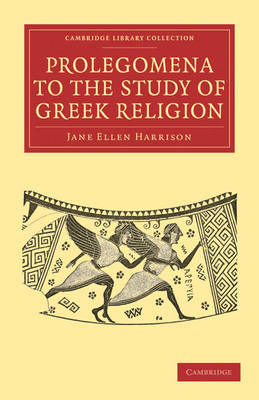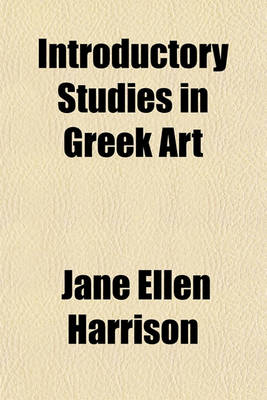Cambridge Library Collection - Classics
3 total works
Drawing upon a range of disciplines including anthropology, classical studies, archaeology and psychology, Jane Ellen Harrison's seminal 1912 work Themis pieces together the origins of early Greek religion. Known as one of the founders of modern studies in Greek mythology, Harrison has been described by her biographer, Mary Beard, as 'Britain's first female professional 'career academic'. She is renowned as being one of the most intellectual women of her time, and the ideas espoused on Greek rituals and myths in Themis remain influential today. This revolutionary study traces Themis back through history, as a matriarchal tribal goddess. Addressing areas including magic, sacrifice and the origin of the Olympic games, Harrison applies archaeological discoveries to the interpretation of Greek religion. Including a detailed preface and explanatory notes, this revised second edition of 1927 is described by Harrison as 'addressed not so much to the specialist as to the thinker generally'.
Jane Ellen Harrison (1850-1928) was a pioneer in the academic study of myth in its historical and archaeological context, and was also one of the first women to make a full-time career as an academic. In her introduction to this book (1903), making the point that 'Greek religion' was usually studied using the surviving literary retellings of myths and legends, she states: 'The first preliminary to any scientific understanding of Greek religion is a minute examination of its ritual'. Using the then emerging disciplines of anthropology and ethnology, she demonstrates that the specific mythological tales of the Greeks embody systems of belief or philosophy which are not unique to Greek civilisation but which are widespread among societies both 'primitive' and 'advanced'. Her work was enormously influential not only on subsequent scholars of Greek religion but in the wider fields of literature, anthropology and psychoanalysis.
Jane Ellen Harrison (1850-1928) was a prominent classical scholar who is remembered chiefly for her influential studies of Greek religion, archaeology, literature and art. Introductory Studies in Greek Art (1885) was Harrison's second book, published after a period spent studying archaeology at the British Museum under Sir Charles Newton and writing and lecturing on the subject of Greek vase painting. In her preface to the book Harrison claims that Greek art is distinguished by what she calls 'ideality', a term she defines as a 'peculiar quality ... which adapts itself to the consciousness of successive ages ... a certain largeness and universality which outlives the individual race and persists for all time.' The book covers topics including Chaldaeo-Assyria, Phoenicia, Pheidias and the Parthenon, and the altar of Eumenes at Pergamos.


